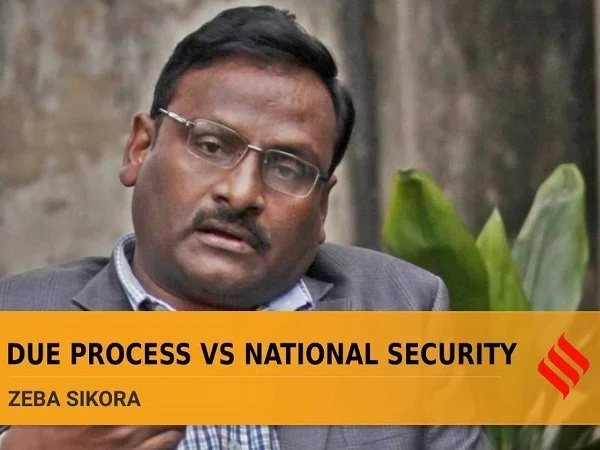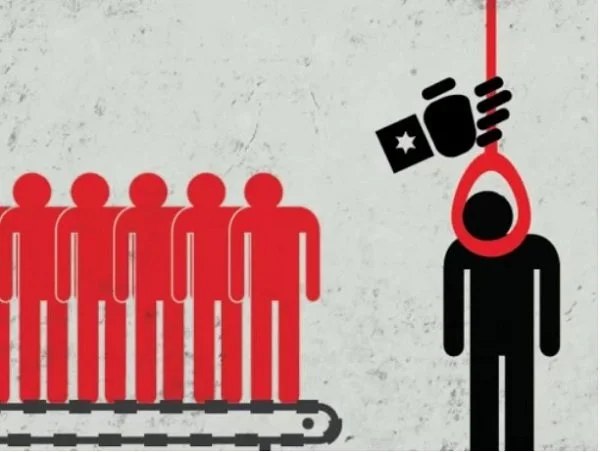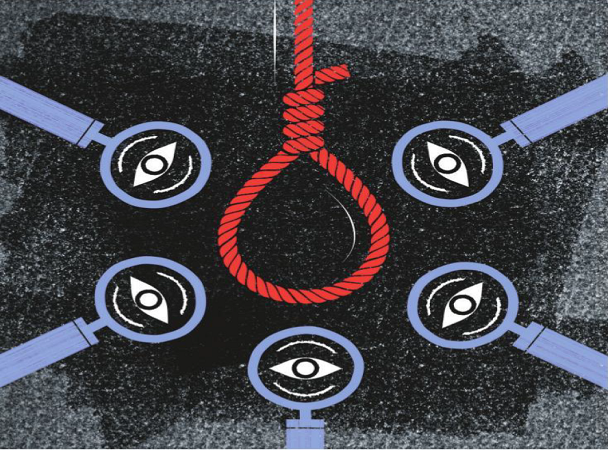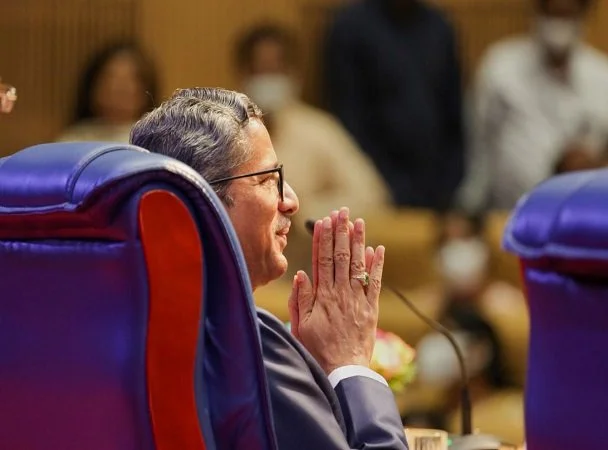On 27 March 2023, 28 years after Niranaram Chetanram Chaudhary alias Narayan was incarcerated for the murder of seven people, the Supreme Court declared that he was a child of 12 at the time of the crime, which meant the maximum sentence he should have received under Indian law when convicted in February 1998 was three years. Narayan spent 25 of his incarceration on death row before release.
Read MoreThe search for the “least painful method” is ultimately an endeavour in how much cruelty we are willing to tolerate. It is about our collective willingness to inflict cruelty on an individual while wanting to appear otherwise.
Read MoreThe last few days have been interesting for the death penalty in India. The Supreme Court (SC) commuted the death sentence of Sundar alias Sundarajan because the possibility of his reform could not be ruled out; it ordered the release of a death row prisoner Narayan Chaudhary because he was 12 at the time of the arrest (he spent 25 years on death row); and it saw a discussion on the logistics and methods of executing a death sentence.
Read MoreThe referral order to the Constitution Bench highlights the lack of a uniform sentencing framework and sidesteps specifying the issues that need consideration.
Read MoreThe year 2022 exemplified the confusion roiling death penalty sentencing in India. Consider the following developments — trial courts handed out the largest number of death penalties in India in over two decades last year, even as the Supreme Court (SC) confirmed just two sentences.
Read MoreEight men sentenced to death were acquitted over a year by the Supreme Court, revealing lapses by police, prosecution, lower and high courts, even falsification of evidence and its acceptance. These men spent an average of 10 years in jail before being acquitted. These cases are testament to the fact that the criminal justice system can condemn innocents to death. By merely acquitting these men, the Supreme Court has not truly set things right.
Read MoreIn September 2022, the Supreme Court of India acknowledged concerns about the capital sentencing framework and ordered the setting up of a Constitution Bench to review it. 42 years after the framework was formulated in Bachan Singh v. State of Punjab (1980),[1] the Court is looking to plug the gaps and reform it to provide a “meaningful, real and effective” opportunity for convicts to be heard regarding sentencing.
Read MoreThe Supreme Court has reiterated that the test re-traumatises rape survivors and is based on patriarchal ideas. But issues related sensitisation of police and lawmakers will have to be addressed by the executive
Read MoreThe Supreme Court, when deciding matters of personal liberty, must balance concerns of national security with empathy — even for those accused of the worst.
When judges award the death penalty, how relevant is it for them to know about an accused person’s life, their social milieu, education, family circumstances and their personal traumas? What exactly does it take to obtain information about potential mitigating circumstances and how much time is needed to do so?
Set in place by a 42-year-old Supreme Court judgement, Indian law requires judges to consider a convict’s life story and the probability of reform in deciding life imprisonment or a death sentence. That ruling has been largely violated, as a study of trial-court judgements makes clear, because the law is fuzzy. Is it really possible to ensure no one is unlawfully sentenced to death? A Supreme Court Constitution bench will have to figure that out.
Read MoreOn September 19th, 2022, a 3-judge bench of the Supreme Court referred certain issues of death penalty sentencing to a larger constitutional bench. One of these issues relates to the amount of time required to collect and present mitigation evidence at the stage of sentencing. This issue is particularly important because, as evidenced by Project 39A's study, sentencing persons to death on the same day as their conviction is pervasive across trial courts.
Read MoreThe Supreme Court in a recent order referred issues relating to capital sentencing in India to a Constitution bench. Unlike the dominant Supreme Court jurisprudence that has articulated inconsistent application of the Bachan Singh framework as the problem with capital sentencing, the referral order, in a markedly distinct approach, recognises the underdeveloped nature of the law.
Read MoreThe imagination of legal representation in capital cases is limited to lawyers. Mitigation, however, needs to be conducted by individuals trained in social work, sociology or psychology.
Read MoreThe Supreme Court has done well to acknowledge that capital punishment needs closer scrutiny and referring the matter to a five-judge bench. The problem that the Supreme Court’s reference to a Constitution Bench seeks to remedy is the need to achieve consistency on the requirements of a fair, meaningful and effective sentencing hearing
Read MoreTo resolve the mental health crisis in prison, a purely medical approach will take us only so far. We need to take a more all-encompassing approach, move beyond treatment of individuals and towards identifying the social and underlying determinants of mental health in prisons.
Read MoreJustice NV Ramana’s tenure as CJI for one year, 124 days began with widespread hope that an extremely strong executive would be held accountable and that the most pressing constitutional issues of our times would be heard and adjudicated upon. However, as is evident now, that did not play out and it ended up being a tenure that promised so much and delivered very little on those fronts.
Read MoreEleven men who were sentenced to life imprisonment in 2008 for the gang rape of Bilkis Bano (she was pregnant then) and the murder of her family members in 2002 were released this week from a jail in Gujarat. While the applicable law in this case, on the face of it, seems to give the power to the Gujarat government to release these men, serious questions about the legality of the decision have emerged.
Read More

















